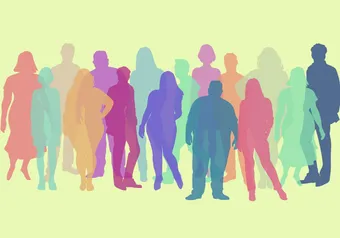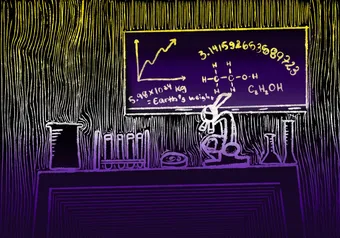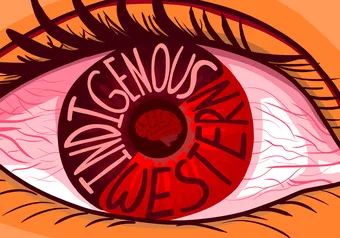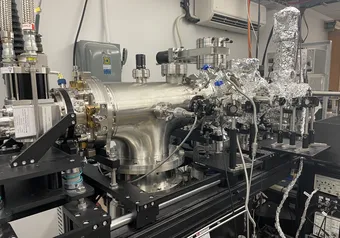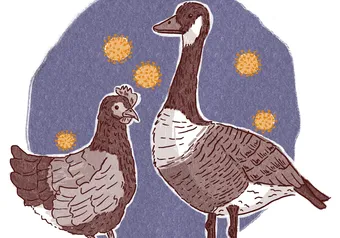Ted Talks — and TedX talks — are some of the most mentally, emotionally and physically stimulating lectures a person can experience. Although it is a world-renowned conference, some of our very own UBC students and professors have given their thoughts, research and personal experiences related to mental health, environmental studies, LGBTQ+ issues and much more. Check out the list below for some of the most influential and thought-provoking talks on various social and scientific issues.
Bi the way, we exist — Viet Vu, economics alumnus
[Sorry, video not found. You can contact webmaster@ubyssey.ca to fix the issue]
“The legal system does not prevent discrimination,” Viet Vu observes with melancholy.
Growing up in Japan and Vietnam, and then coming to UBC for university, Vu was aware of his bisexuality from a young age but had never admitted his feelings to anyone, including his family. However, he gradually came out during his time at UBC. Although his experience wasn’t all-positive, Vu found friends who showed him that through happiness, empathy and vulnerability, there was a way to overcome negative responses from his family. His hope for the future? That his story doesn’t need to happen again to others in his position.
How do trees collaborate — Suzanne Simard, forestry professor
[Sorry, video not found. You can contact webmaster@ubyssey.ca to fix the issue]
It started with her dog falling into an outhouse pit.
For Dr. Suzanne Simard, a UBC professor of forest ecology, her experiments began when she was young and have carried through into her adult life, proving her thesis of how trees have a massive underground communications network in which they are co-dependent and cooperative. However, Canada has the highest rate of forest disturbance of any country worldwide — so Simard asks how can we strengthen our forests in the time of major climate change.
What is home? Growing up between cultures — Abeer Yusuf, school of journalism alumna
[Sorry, video not found. You can contact webmaster@ubyssey.ca to fix the issue]
Abeer Yusuf, a UBC School of Journalism alumna, is what she calls a TCK — a third culture kid. Yusuf was born in India, but grew up in UAE and Malaysia. She argues that because of her experience as a TCK, home and identity matter. Yusuf poses the simple question of “what is home?” and realizes that the answer is different for everyone, but every answer matters. Yusuf forces you to think that if home isn’t a geographic location, then what is it?
Living on the boundary: Exploration at the edge of physics — Joel Hutchinson, master of theoretical physics student
[Sorry, video not found. You can contact webmaster@ubyssey.ca to fix the issue]
You know those movies that just blow your mind with some out-of-this world ideas that actually exist in our reality but you never think of them? Joel Hutchinson’s TedX Talk is like a miniature version of those films that will have you rewinding and pausing as you contemplate string theory. UBC was the basis of Hutchinson’s research where he is completing his master's degree in theoretical physics. Listen and watch as Hutchinson describes how the world is an endless place to explore, learn and create through the world of physics.
Universities and the future of innovation — Ekateryna Nova, political science and economics alumna
[Sorry, video not found. You can contact webmaster@ubyssey.ca to fix the issue]
Recent UBC graduate Ekateryna Nova suggests that all universities have the potential to be a place for sharing ideas and working together to create new inventions. Nova focuses on three ideas — the air conditioner, the parachute and the webcam — emphasizing that these were all made because the resources were available and help was offered. At UBC, we are subject to so many opportunities to discover and construct, so why wouldn’t we take advantage of it? Finally, Nova states that with growing education, a bachelor’s degree becomes less valued and harder to get a job after graduation — why don’t we share all of the knowledge and use it to work towards a greater future?
Living with bipolar disorder type II — Laura Bain, science alumna.
[Sorry, video not found. You can contact webmaster@ubyssey.ca to fix the issue]
One of the most important conversations we can have as a society is talking about mental health. Laura Bain, now an alumna, gave her TedX Talk in 2011 when she was a biology major. Bain lives with bipolar disorder type II and she emphasizes that it is a disorder she deals with nearly every day of her life. Drawing from statistics, scientific evidence and personal experience, Bain explains why without conversation, we will neither thrive nor understand the true depths behind the complexity of the mind as it differs from person to person.
First online
Share this article



